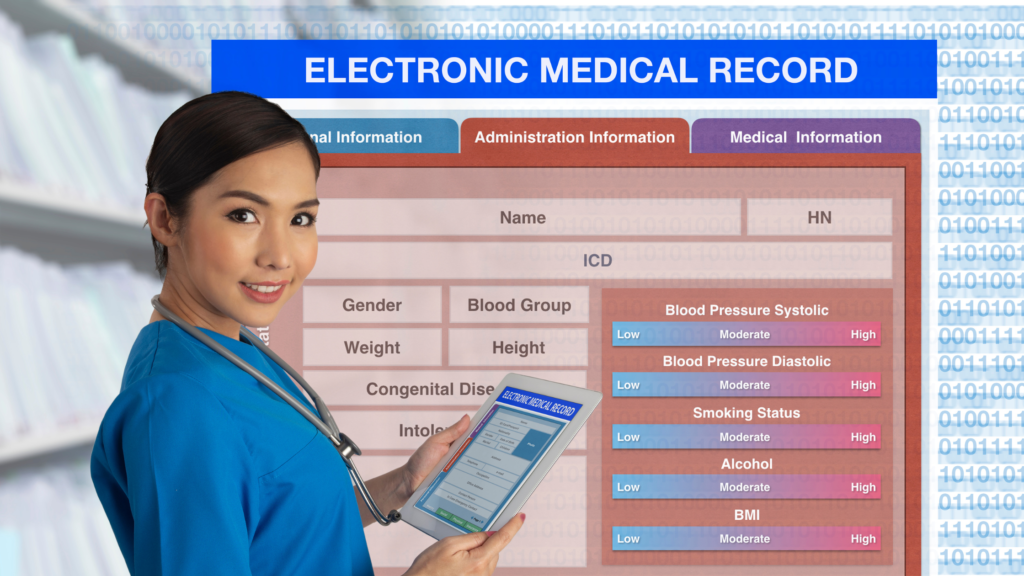
When it comes to IT services in healthcare, we’re entering a whole new world. As technology continues to advance at breakneck speed, we’re seeing massive shifts in how healthcare data is stored and used. This shift brings incredible benefits, like streamlined operations and better patient care, but it also opens up a can of worms — cybersecurity.
With a wealth of sensitive data at their fingertips, healthcare practices have become a hot target for cybercriminals. The impact of a successful cyberattack can be disastrous, threatening a healthcare organization’s reputation, finances, and most importantly, their patients’ trust.
That’s where IT services step in, providing a crucial defense line against these cyberthreats. Their comprehensive approach, tailored to the unique challenges of healthcare, helps protect organizations and keeps patient data secure. In this blog, we’ll dive into the nuts and bolts of cybersecurity in healthcare, exploring the vulnerabilities we face, and how cybersecurity providers are stepping up to the plate to keep healthcare practices secure and patient data safe.
The Importance of Cybersecurity in Healthcare
In this fast-paced, tech-driven world, IT services are becoming increasingly crucial in the healthcare industry. Why? Because the healthcare data that’s considered a “gold mine” by cybercriminals is growing exponentially. The trove of sensitive personal details it holds – including medical histories, insurance specifics and identifying financial data – presents an irresistible target.
The aftermath of a successful cyberattack can be staggering, stretching far beyond financial losses. Healthcare institutions can face massive fines, potential lawsuits and even ransom payments. For small and medium-sized practices, a significant breach could be devastating enough to lead to bankruptcy.
But it’s not just about the money. A security breach can do serious damage to a healthcare organization’s reputation. Trust is a healthcare institution’s lifeblood, and a breach can lead to a crisis of confidence that may take years to recover from. Moreover, severe breaches could disrupt healthcare services, jeopardizing patient well-being.
The gravity of protecting patient data cannot be overstated. With laws like HIPAA in place, healthcare organizations are legally bound to ensure effective safeguarding of patient data. Non-compliance can lead to severe penalties including steep fines and potential prison time.
It’s clear as day: cybersecurity is vital in healthcare. The stakes are high, and the risks are only escalating. This is where IT services become indispensable. From cybersecurity provider expertise to delivering managed IT services, these services help healthcare practices confront the challenge of securing sensitive data in the digital age.
Unmasking the Vulnerabilities of Healthcare IT

Why is the healthcare industry a soft target for cyberthreats? The answer lies in interconnected systems, rapid digitalization, personal device usage, and often, a workforce that lacks cybersecurity training.
One major reason healthcare is susceptible to cyberattacks is the prevalent use of outdated systems. Many healthcare institutions, especially smaller practices, are stuck with legacy systems that lack updated security measures. These easy targets are low-hanging fruit for cybercriminals.
With the swift shift to digital records and the increasing use of telehealth services, the attack surface has expanded. As healthcare practices become more interconnected, the potential entry points for cybercriminals multiply. From Electronic Health Records (EHR) to remote patient monitoring systems, any digital touchpoint could be a vulnerability if not secured effectively.
The human factor is another significant vulnerability. Phishing attacks are commonplace, and without adequate training, healthcare staff could unintentionally give cybercriminals access.
Finally, the Internet of Things (IoT) brings another layer of complexity to healthcare cybersecurity. Numerous medical devices are now internet-enabled, which could potentially give malicious actors access if not secured properly.
Understanding these vulnerabilities is step one in addressing them. That’s where professional IT services come in, providing invaluable expertise to identify and rectify these vulnerabilities before they can be exploited.
How IT Services Boost Cybersecurity
Having unpacked the risks and vulnerabilities, the role of IT services in strengthening healthcare cybersecurity becomes clear. With a suite of solutions including IT consulting, IT support services and backup and disaster recovery planning, they’re uniquely equipped to fortify the cybersecurity of healthcare organizations.
Regular security audits are a critical way IT services can provide support. These audits spot potential vulnerabilities, like outdated systems or weak passwords, before they can be taken advantage of. This proactive approach ensures risks are identified and mitigated promptly.
Network monitoring is another essential service that IT support teams provide. By keeping an eagle eye on a healthcare organization’s network, IT services can spot and respond to unusual activity indicative of a cyberattack.
Implementation of advanced security software is another way IT services enhance cybersecurity. From firewalls to anti-malware programs, these tools provide robust protection for healthcare IT systems. IT services ensure these software tools are always up to date, providing the best possible defense against cyberthreats.
Another vital role of IT services is providing cybersecurity training for healthcare staff. This training equips employees to recognize and respond to potential threats, such as phishing emails. With the knowledge to sidestep common cybersecurity pitfalls, healthcare staff can form a human firewall against cyberattacks.
In the ever-evolving landscape of cyberthreats, IT services are crucial. They offer the expertise and resources healthcare organizations need to keep their data, and their patients’ data, safe and secure.
Overcoming Obstacles in Implementing IT Services
While the benefits of incorporating IT services into healthcare cybersecurity are obvious, some barriers may hinder implementation. Budget constraints, resistance to change and a lack of understanding about the gravity of cybersecurity risks are common obstacles.
Budget limitations can pose a significant challenge, especially for small and medium-sized practices. Upgrading IT infrastructure and engaging professional IT support services may seem like a hefty financial commitment. However, it’s critical to compare this cost against the potential financial and reputational damage a data breach could cause.
Resistance to change can be another hurdle. Integrating IT services into healthcare operations often requires a change in practices and attitudes. Helping staff understand the importance of cybersecurity and how new best practices protect both them and their patients, can be an effective strategy to minimize resistance.
Lastly, a lack of understanding or underestimating the gravity of cybersecurity risks can hinder the implementation of IT services. It’s essential to promote a culture of cybersecurity awareness across the organization.
By recognizing and addressing these barriers, healthcare practices can transition smoothly towards bolstering their cybersecurity, protecting their data and maintaining patient trust.
Choosing the Right IT Support Provider

Selecting the right IT support provider for your healthcare organization is a crucial decision. Look for a provider that has healthcare experience, a solid reputation, a comprehensive range of services, offers customized solutions, provides excellent customer service, is future-ready and has proven compliance expertise.
In this digital age, the healthcare industry stands at a critical juncture. Technological advancements have improved patient care and streamlined operations. But they’ve also created vulnerabilities that make healthcare practices prime targets for cybercriminals.
The stakes are sky-high. Healthcare organizations shoulder the responsibility of protecting sensitive patient data, a breach of which could lead to significant financial and reputational damage. But as we’ve explored in this post, implementing robust IT services can significantly strengthen a healthcare practice’s cybersecurity posture.
From conducting regular security audits and network monitoring to providing essential employee training, IT services play a key role in safeguarding healthcare organizations from the ever-evolving landscape of cyberthreats. Moreover, they provide specialized expertise to ensure your organization complies with critical regulations like HIPAA.
Choosing the right IT services provider is key. By considering their experience, reputation, range of services and dedication to customizing solutions, you can find a provider that fits your specific needs and helps safeguard your practice against cyberthreats.
Investing in IT services isn’t just about risk mitigation; it’s about actively protecting patient trust – the cornerstone of any healthcare practice. As the healthcare sector continues to embrace digital technologies, aligning with skilled IT service providers is not just a strategic move – it’s a necessity.
Recognizing the importance of securing your healthcare practice is the first step. The next is taking action. Expert IT service providers are ready to help safeguard your practice, secure your patients’ data and ensure your organization’s ongoing compliance with crucial regulations.
Don’t wait until a breach occurs. Be proactive and reach out today to learn more about how our IT services can fortify your healthcare practice’s cybersecurity. We understand the unique needs and challenges of the healthcare industry, and we’re here to support you in protecting what matters most – your patients’ trust.
Contact us for a consultation and let us show you how you can transform your cybersecurity posture.
The journey towards robust healthcare cybersecurity starts with a single step. Take that step today.